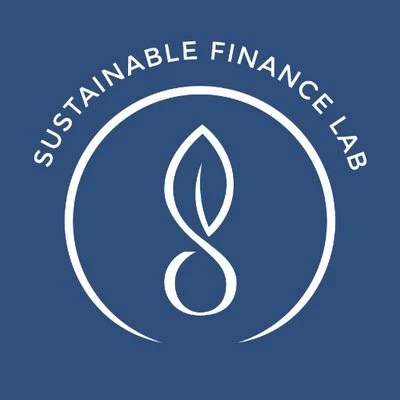Nature needs to get higher on the agenda of central banks and financial supervisors
Nature needs to get higher on the agenda of central banks and financial supervisors
January 15, 2024 – A new report from WWF and the Sustainable Finance Lab (SFL) sets out what central banks and supervisors can do over the next five years to turn the tide on nature loss which increasingly threatens global financial stability. A global decline in pollinators, for example, is contributing to harvest failures and driving higher food prices. Central banks and financial supervisors are recognising the threats of nature loss but must do much more to effectively address them, including by protecting and restoring biodiversity as part of their mandates.
Global WWF research (eg. WWF´s recently launched Sustainable Financial Regulations and Central Bank Activities (SUSREG) Tracker 2023) shows that central banks and supervisors are at risk of turning a blind eye to climate and giving insufficient attention to nature in their monetary policies and instruments.
This paper “Finding a way with nature; how central banks and supervisors can start acting on nature-related risks" confirms this and emphasizes that it is not possible to mitigate climate change without halting nature loss.
Even frontrunners still have a long way to go
The Dutch Central Bank (DNB) for example, emerges in both studies as one of the first central banks to assess the impact and dependency of the financial system on nature, and to include biodiversity in its sustainable finance strategy. It is also considering publishing its own transition plan.
Christine Wortmann, WWF Green Finance team Netherlands says: “We applaud the leadership of DNB, but there is still much more work to be done. Integrating nature is not yet business as usual for the financial sector, and we must keep pressure to translate awareness into concrete action. The DNB can play an important role in this; both in terms of policy and awareness raising."
Rens van Tilburg, Director Sustainable Finance Lab says: "Climate and nature cannot be separated. Yet currently, central banks focus almost exclusively on climate. However, there are nature-related targets and data available that supervisors already can work with today. Using these, they can mitigate the biggest risks."
Lack of concrete policies
So far, measures taken by central banks and supervisors have mainly focused on raising awareness and conducting research. Concrete policies and actions to manage nature-related risks are lacking. SFL's research defines a wide range of measures that central banks and regulators can take already. WWF recom-mends that central banks and supervisors take in particular the following measures:
● The precautionary approach 'rather now than never': emphasizing proactive measures even when faced with incomplete data and methodologies. The cost of inaction is high and central banks and supervisors must act before it is too late and tipping points are reached that make recovery impossible.
● Focus on the activities that are always environmentally damaging, such as fossil fuel extraction, defo-restation or pesticides, and attach consequences such as capital add-ons.
● Set an example and publish your own transition plans, which includes a direct link between biodiversity loss and climate change.
Basic environmental risks are falling behind in financial regulation and supervision
Since 2021, WWF has been evaluating annually how central banks and financial regulators are making progress with integrating climate change and nature loss risks into their operations and activities. The lastest Sustainable Financial Regulations and Central Bank Activities (SUSREG) Tracker 2023 assessment, published at the end of December 2023, shows that several central banks and financial regulators are making progress in "greening" their financial regulation and supervision. However, high-income countries, countries with the highest greenhouse gas emissions and countries with the greatest biodiversity are lagging significantly behind. Current financial regulations and activities of central banks are primarily focusing on climate. In doing so, they do not adequately take into account biodiversity loss and the consequences for communities that depend heavily on it for their livelihoods.
The financial sector plays a key role in biodiversity protection
All savings and pension funds, working capital and the national treasury are managed by banks and asset managers. With investments and loans, they determine which companies and projects to support. These are investments with potentially major consequences. They can lead to more nature loss or, on the contrary, to nature conservation and restoration. This is where the financial sector can make a difference and lead the transition towards a net zero, nature positive economy. Central banks and supervisors can already do much within their existing mandates because of the importance of nature for (long-term) financial and price stability. A proactive leading role is essential to ensure sufficient resilience of the economic system to the risks of biodiversity loss.
The Sustainable Finance Lab
The Sustainable Finance Lab is an informal interdisciplinary network of mostly academics of different Dutch universities. Its secretary’s office is located at the Utrecht University School of Economics. The aim of the Sustainable Finance Lab is a stable and robust financial sector that contributes to an economy that serves humanity without depleting its environment.

Want to know more?
Feel free to contact us (the form is in Dutch, but you can fill it out in English) if you want to know more. Our experts are more than happy to help you if you have any further questions for WWF aims to encourage a meaningful shift in finance by integrating nature into all financial decision making. We like to encourage leadership and best practices.
More results and updates
Financing green brochure
The new generation is not accepting our slowness
Financial sector acknowledges risks and opportunities of nature, but lacks data
WWF's Head of Green Finance Aaron Vermeulens blog.
